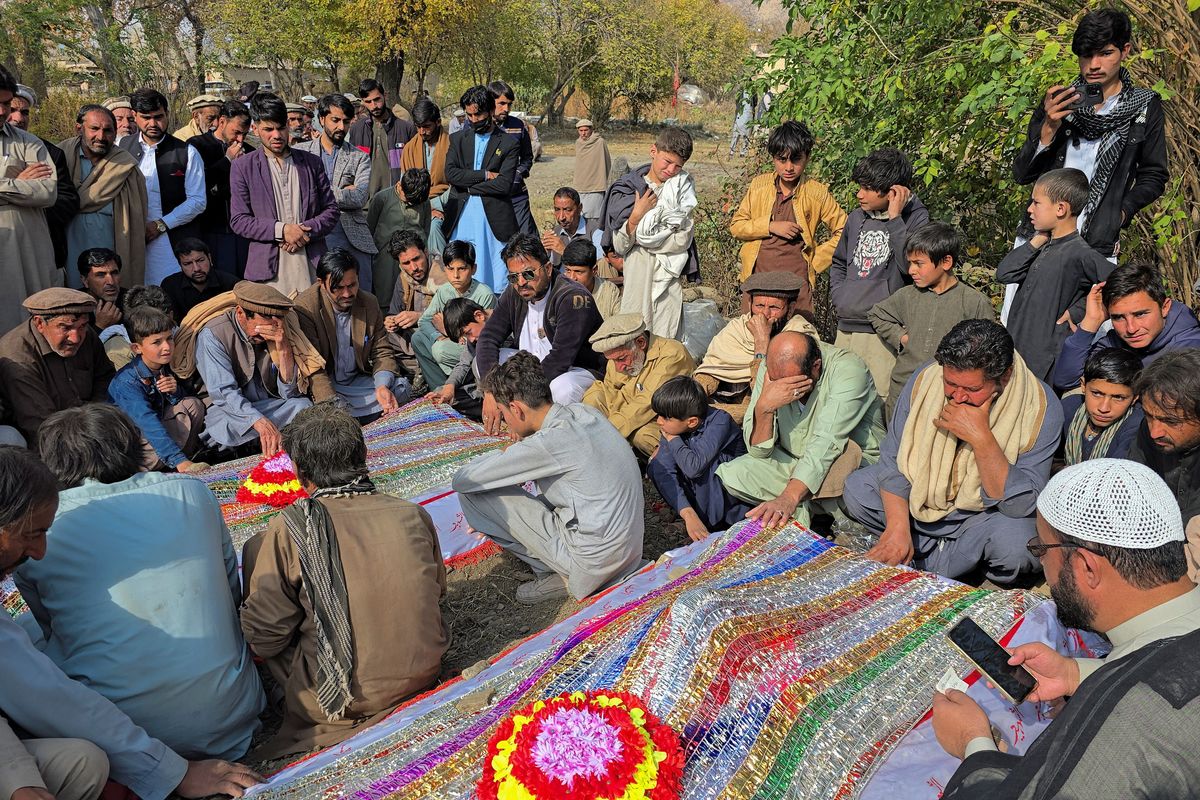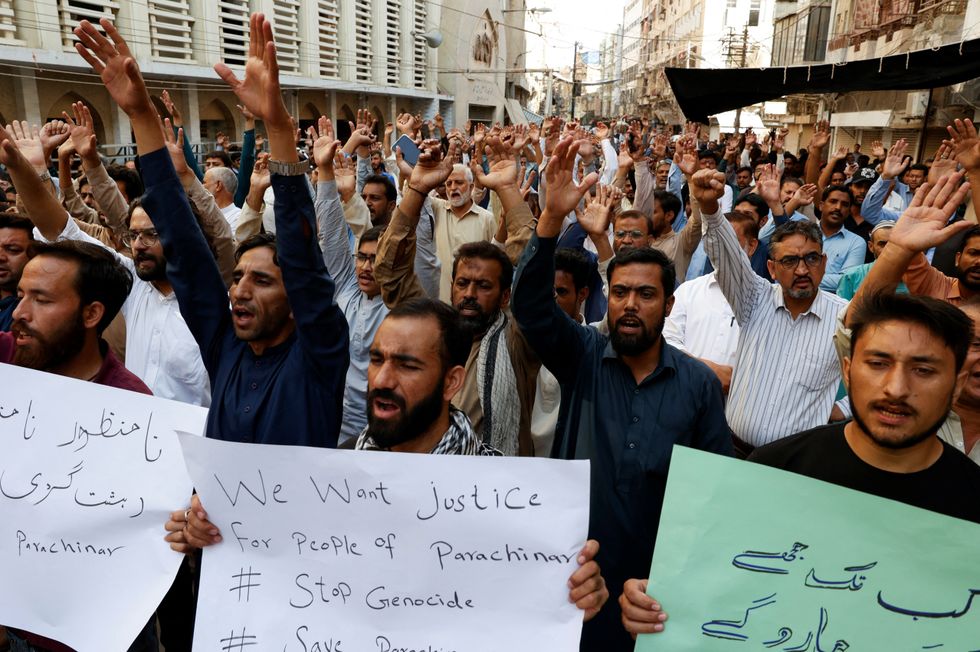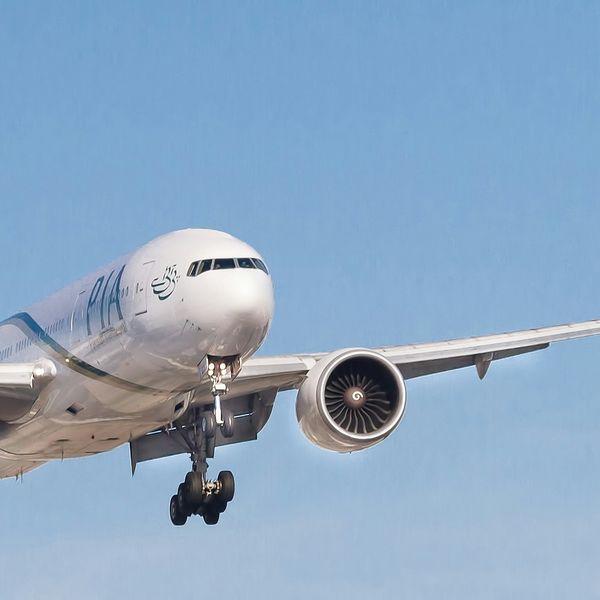Tribes agree to 7-day ceasefire after sectarian clashes in northwestern Pakistan
KP government jirga mediates ceasefire as sectarian clashes leave 82 dead, 156 injured; both sides agree to exchange prisoners, bodies
News Desk
The News Desk provides timely and factual coverage of national and international events, with an emphasis on accuracy and clarity.

People mourn over the graves of relatives who were killed after gunmen opened fire on passenger vehicles in the Kurram tribal district of Khyber Pakhtunkhwa province, in Shalozan, Pakistan November 22, 2024.
Reuters
A government jirga, a tribal council, has secured a seven-day ceasefire in northwestern Pakistan after three days of intense sectarian clashes that claimed 82 lives and left 156 injured.
Khyber Pakhtunkhwa Adviser on Information Barrister Dr. Muhammad Saif on Sunday confirmed the agreement after the jirga returned to Peshawar following negotiations with both factions in Kurram district.
"Yesterday, we met Shia elders, and today, we held talks with Sunni leaders. Both sides have agreed to a seven-day ceasefire," he said. "They also agreed to exchange prisoners and return the bodies of the deceased."
Escalation of violence
The clashes began on Thursday when two police-escorted convoys traveling from Parachinar to Peshawar were ambushed. The violence triggered widespread gunfights over the next two days, with both light and heavy weapons used.
A local administration official, speaking on condition of anonymity, provided further details: "The convoy attacks and subsequent clashes on November 21, 22, and 23 resulted in 82 fatalities and 156 injuries. Among the deceased, 16 were Sunni, while 66 were Shia."
- YouTubewww.youtube.com
The gunfights displaced about 300 families, who fled the affected areas on Saturday. "No fresh casualties have been reported on Sunday morning," the official added.
The unrest has severely disrupted daily life in Kurram. "The mobile network across Kurram remains suspended, and traffic on the main highway is completely halted," the local official said.
Jirga efforts and security concerns
The jirga’s mission in Kurram faced challenges, including a security scare. A provincial government security official revealed that the negotiators' helicopter was fired upon while landing in the conflict zone. "Thankfully, no one was harmed," he said.

"Our priority today is to broker a ceasefire between both sides. Once that is achieved, we can begin addressing the underlying issues," provincial Law Minister Aftab Alam Afridi said earlier in the day.
History of sectarian clashes
Kurram, which was part of the Federally Administered Tribal Areas (FATA) until its merger with Khyber Pakhtunkhwa in 2018, has a long history of sectarian violence.
Just last month, sectarian clashes in the district killed 16 people, including women and children. Earlier in July and September, dozens were killed in similar violence, which only subsided after tribal jirgas brokered ceasefires.
The Human Rights Commission of Pakistan (HRCP) reported 79 deaths in sectarian clashes in Kurram between July and October this year.
The violence has sparked protests in major cities. Hundreds of people demonstrated in Lahore and Karachi on Friday and Saturday, demanding an end to sectarian bloodshed and improved security measures in the region.






Comments
See what people are discussing